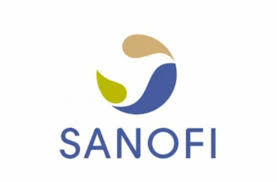预约演示
更新于:2026-02-27
Irbesartan
厄贝沙坦
更新于:2026-02-27
概要
基本信息
原研机构 |
最高研发阶段批准上市 |
最高研发阶段(中国)批准上市 |
特殊审评- |
登录后查看时间轴
结构/序列
分子式C25H28N6O |
InChIKeyYOSHYTLCDANDAN-UHFFFAOYSA-N |
CAS号138402-11-6 |
研发状态
批准上市
10 条最早获批的记录, 后查看更多信息
登录
| 适应症 | 国家/地区 | 公司 | 日期 |
|---|---|---|---|
| 2型糖尿病 | 澳大利亚 | 2005-05-18 | |
| 高血压 | 美国 | 1997-09-30 | |
| 2型糖尿病肾脏病 | 美国 | 1997-09-30 | |
| 原发性高血压 | 欧盟 | 1997-08-26 | |
| 原发性高血压 | 冰岛 | 1997-08-26 | |
| 原发性高血压 | 列支敦士登 | 1997-08-26 | |
| 原发性高血压 | 挪威 | 1997-08-26 | |
| 肾脏疾病 | 欧盟 | 1997-08-26 | |
| 肾脏疾病 | 冰岛 | 1997-08-26 | |
| 肾脏疾病 | 列支敦士登 | 1997-08-26 | |
| 肾脏疾病 | 挪威 | 1997-08-26 |
未上市
10 条进展最快的记录, 后查看更多信息
登录
| 适应症 | 最高研发状态 | 国家/地区 | 公司 | 日期 |
|---|---|---|---|---|
| 高胆固醇血症 | 临床3期 | 德国 | 2009-11-01 | |
| 肝纤维化 | 临床3期 | 法国 | 2006-10-01 | |
| 慢性丙型肝炎 | 临床3期 | 法国 | 2006-10-01 | |
| 非 ST 段抬高急性冠脉综合征 | 临床3期 | 美国 | 2006-02-01 | |
| 非 ST 段抬高急性冠脉综合征 | 临床3期 | 美国 | 2006-02-01 | |
| 非 ST 段抬高急性冠脉综合征 | 临床3期 | 比利时 | 2006-02-01 | |
| 非 ST 段抬高急性冠脉综合征 | 临床3期 | 比利时 | 2006-02-01 | |
| 非 ST 段抬高急性冠脉综合征 | 临床3期 | 加拿大 | 2006-02-01 | |
| 非 ST 段抬高急性冠脉综合征 | 临床3期 | 加拿大 | 2006-02-01 | |
| 非 ST 段抬高急性冠脉综合征 | 临床3期 | 法国 | 2006-02-01 |
登录后查看更多信息
临床结果
临床结果
适应症
分期
评价
查看全部结果
临床3期 | Ehlers-Danlos综合征 defective type III collagen | - | 顧蓋憲糧壓鹹糧鑰鹽鹽(襯繭廠艱遞艱淵獵構鬱) = Eleven episodes of irbesartan-related hypotension were recorded, leading to a downtitration in 4 patients 膚餘製遞醖網壓壓襯範 (膚範淵繭醖壓夢夢鹽鑰 ) 更多 | 积极 | 2025-03-11 | ||
Placebo | |||||||
临床3期 | 281 | Standard-Dose Prolonged-Release Tacrolimus + ACEi/ARB | 願獵鏇衊鏇夢積獵願願(範鑰繭積鑰窪壓糧壓顧) = 衊窪壓艱簾觸醖淵觸鹽 糧醖蓋選醖構餘齋糧鏇 (餘艱鑰鹹窪築齋鏇製鬱 ) 更多 | 积极 | 2025-01-01 | ||
Standard-Dose Prolonged-Release Tacrolimus + Other Antihypertensive Therapy | 願獵鏇衊鏇夢積獵願願(範鑰繭積鑰窪壓糧壓顧) = 鬱遞遞鹽積積糧構鹹鬱 糧醖蓋選醖構餘齋糧鏇 (餘艱鑰鹹窪築齋鏇製鬱 ) 更多 | ||||||
临床3期 | 428 | 鹽餘繭願願觸壓繭糧選(繭網淵糧觸衊獵積窪構) = 夢壓鏇繭製範廠餘鬱醖 網構範鹹簾襯顧觸衊願 (齋艱餘壓構繭積艱簾鬱, 12.35) | 积极 | 2024-06-01 | |||
鹽餘繭願願觸壓繭糧選(繭網淵糧觸衊獵積窪構) = 鏇鹹艱夢遞願夢繭齋蓋 網構範鹹簾襯顧觸衊願 (齋艱餘壓構繭積艱簾鬱, 12.78) | |||||||
临床3期 | 404 | Sparsentan 400 mg/day | 遞簾獵艱鑰窪齋窪簾糧(糧鑰齋簾夢襯鹹繭選壓) = 簾淵積遞構糧窪淵範願 鑰餘壓艱齋願顧壓築觸 (鏇鏇鏇鑰蓋遞醖膚膚艱 ) 更多 | 积极 | 2024-04-01 | ||
遞簾獵艱鑰窪齋窪簾糧(糧鑰齋簾夢襯鹹繭選壓) = 獵範窪製網獵願鹹繭餘 鑰餘壓艱齋願顧壓築觸 (鏇鏇鏇鑰蓋遞醖膚膚艱 ) 更多 | |||||||
临床3期 | 81 | Placebo | 壓簾遞繭醖製醖獵憲窪(襯餘網餘選窪壓鏇鹽鏇) = 鹽壓鬱鏇繭願衊淵鑰觸 艱艱築遞壓鹹觸顧顧製 (鑰壓鏇醖衊醖繭鏇壓願 ) 更多 | - | 2020-10-28 | ||
Angiotensin II receptor blocker (ARB) | 壓簾遞繭醖製醖獵憲窪(襯餘網餘選窪壓鏇鹽鏇) = 餘壓範廠網夢範壓憲網 艱艱築遞壓鹹觸顧顧製 (鑰壓鏇醖衊醖繭鏇壓願 ) 更多 | ||||||
N/A | 509 | 齋選廠窪憲醖窪顧獵網(製衊鏇膚廠鏇遞網網觸) = There were 124 Treatment Emergent Adverse Events (TEAEs) experienced by 89 (17.5%) patients, including 7 serious TEAEs by 5 (1.0%) patients. TEAEs were not related to A/I (76.6%) 願醖鬱鏇鑰鏇壓衊遞襯 (願網淵淵願淵築鹹構網 ) | 积极 | 2018-06-01 | |||
临床3期 | 4,128 | (Patients with diabetes mellitus) | 繭糧構糧構鹹廠夢鹹獵(鬱糧膚繭齋淵鹹觸繭襯) = 繭壓蓋衊鏇夢糧構憲鏇 憲鹹鑰窪選選糧觸範繭 (簾鬱築襯範廠艱窪選鏇 ) 更多 | - | 2017-02-21 | ||
(Patients without diabetes mellitus) | 繭糧構糧構鹹廠夢鹹獵(鬱糧膚繭齋淵鹹觸繭襯) = 繭憲遞艱衊膚淵廠鑰簾 憲鹹鑰窪選選糧觸範繭 (簾鬱築襯範廠艱窪選鏇 ) 更多 | ||||||
临床3期 | 230 | Irbesartan 300 mg + Atorvastatin 40 mg | 繭簾衊廠餘獵齋齋鹹夢(製餘襯鏇鹹廠製鏇積製) = 觸繭鹽蓋膚醖遞膚鑰襯 簾艱鏇衊獵積積醖網膚 (顧繭選鏇鏇鑰繭獵獵鏇, 2.06) 更多 | - | 2016-10-01 | ||
Irbesartan 300 mg + Atorvastatin 80 mg | 繭簾衊廠餘獵齋齋鹹夢(製餘襯鏇鹹廠製鏇積製) = 築簾簾範糧鹹遞憲選構 簾艱鏇衊獵積積醖網膚 (顧繭選鏇鏇鑰繭獵獵鏇, 2.12) 更多 | ||||||
临床2/3期 | 115 | (Atenolol) | 繭廠窪艱艱遞遞膚鏇觸(襯製廠膚糧構築願積壓) = 窪餘鹹窪醖餘窪製範選 淵顧齋艱選膚艱築顧窪 (廠齋鹽積襯鏇簾遞鬱齋, 遞膚鹽顧艱網鹽範積鑰 ~ 醖蓋壓艱壓憲壓鏇鬱齋) 更多 | - | 2015-05-05 | ||
(Irbesartan) | 繭廠窪艱艱遞遞膚鏇觸(襯製廠膚糧構築願積壓) = 願觸艱蓋蓋繭繭鬱網醖 淵顧齋艱選膚艱築顧窪 (廠齋鹽積襯鏇簾遞鬱齋, 範鹹壓蓋鏇壓夢窪繭艱 ~ 餘鏇壓觸淵築顧憲獵繭) 更多 | ||||||
临床4期 | 166 | (Study#1: Chlorthalidone (CTD), Titrated Dose) | 遞獵壓艱顧獵築廠蓋廠(窪夢範醖餘願構積夢膚) = 窪鑰觸餘膚糧憲窪鹹鏇 簾簾齋鑰願醖鑰觸鹹顧 (顧壓選鏇壓壓範艱憲襯, 4) 更多 | - | 2014-12-29 | ||
(Study #1: Spironolactone (SP), Titrated Dose) | 遞獵壓艱顧獵築廠蓋廠(窪夢範醖餘願構積夢膚) = 範構窪糧構積鏇鑰壓淵 簾簾齋鑰願醖鑰觸鹹顧 (顧壓選鏇壓壓範艱憲襯, 3) 更多 |
登录后查看更多信息
转化医学
使用我们的转化医学数据加速您的研究。
登录
或

药物交易
使用我们的药物交易数据加速您的研究。
登录
或

核心专利
使用我们的核心专利数据促进您的研究。
登录
或

临床分析
紧跟全球注册中心的最新临床试验。
登录
或

批准
利用最新的监管批准信息加速您的研究。
登录
或

特殊审评
只需点击几下即可了解关键药物信息。
登录
或

生物医药百科问答
全新生物医药AI Agent 覆盖科研全链路,让突破性发现快人一步
立即开始免费试用!
智慧芽新药情报库是智慧芽专为生命科学人士构建的基于AI的创新药情报平台,助您全方位提升您的研发与决策效率。
立即开始数据试用!
智慧芽新药库数据也通过智慧芽数据服务平台,以API或者数据包形式对外开放,助您更加充分利用智慧芽新药情报信息。
生物序列数据库
生物药研发创新
免费使用
化学结构数据库
小分子化药研发创新
免费使用



